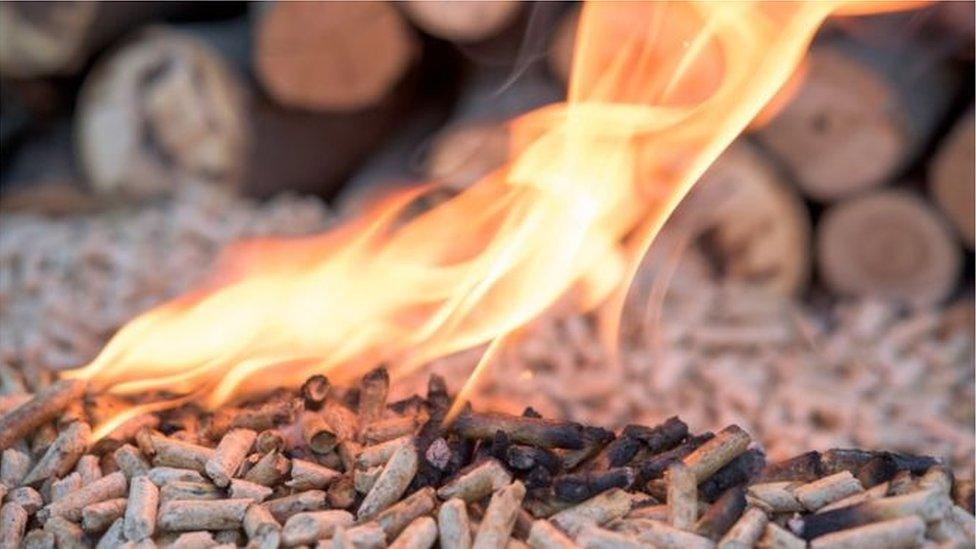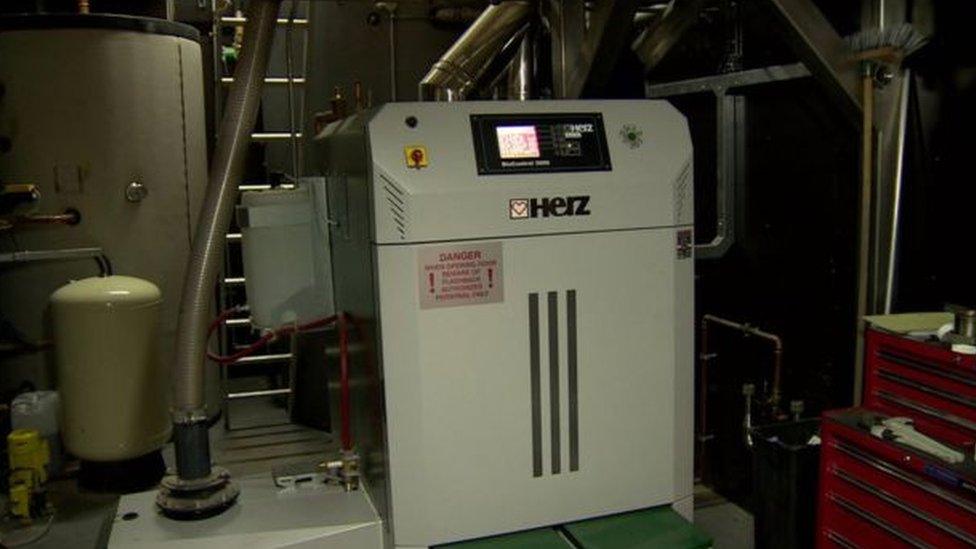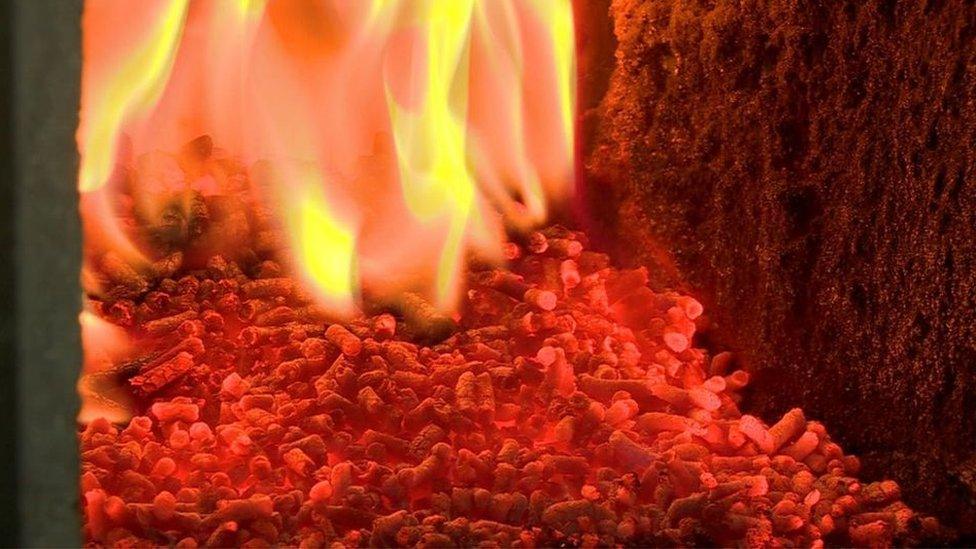RHI scheme: Civil servant defends payment cuts
- Published

A senior civil servant has defended deep cuts to RHI payments, saying anything else could have had "severe consequences" for government and firms on the scheme.
Noel Lavery wrote to the chairperson of a Westminster committee investigating whether they are fair.
Mr Lavery is the permanent secretary in the Department for the Economy, which drove the changes.
He's due to give evidence to MPs next week.
The cuts, implemented in April, took the average annual payment per boiler down from £13,000 to £2,000.
Businesses claimed they were punitive and placed them at a commercial disadvantage.
The Renewable Heat Incentive (RHI) scheme was set up in 2012 to boost uptake of eco-friendly heat systems but huge subsidies led to a potential bill of £490m for Northern Ireland taxpayers.
Mr Lavery said the department had little option but to comply with EU laws on state aid for companies.
He said after the public consultation his officials had intended to bring in tariffs that would have resulted in a higher payment.
But when they told the European Commission, it refused to accept the plan and insisted on a tariff which limited businesses to a 12% rate of return on their investment in the boiler - not the 19% the department proposed.
'Severe consequences'
In his letter to MPs, Mr Lavery said breaching state aid rules could have resulted in "severe consequences".
He claimed it might have led to the commission insisting that the department claw back from claimants any money already paid out in excess of the 12% rate approved.
The department's new tariffs did not include any form of claw back clause.
Mr Lavery also addressed claims that the scheme in Britain was much more lucrative than the one now in force in Northern Ireland.
He said firms there were entitled to more money because most had adopted biomass boilers earlier when they were more expensive.

There are about 2,100 boilers in the Northern Ireland RHI scheme
By contrast, applicants to the scheme in Northern Ireland had been more recent adopters when the boilers were cheaper and so needed less money to pay for the technology switch.
And he explained that boiler owners here were still saving money on their fuel bills because biomass was cheaper than any other fuel.

How was the RHI scheme meant to work?
Businesses and other non-domestic users were encouraged to ditch the fossil fuel-based heat generators on their premises and replace them with systems powered by renewable energy.
Those systems included biomass boilers, mostly burning wood pellets, as well as solar thermal and heat pumps.
The RHI scheme offered long-term financial support to those who signed up, in order to cover the cost of their new heating system and the fuel used to power it.
Users would receive a fixed amount of money for each kilowatt of heat energy their system would produce for a period of 20 years.

By contrast in England, he said, wood pellets were more expensive than alternative forms of fuel and it was costing firms there to use them.
Mr Lavery told the committee that he would not be able to give evidence about matters which might form part of an upcoming legal challenge to the tariffs.
He also said a proposed voluntary buy out for participants on the RHI scheme would only be introduced after the Westminster committee published its report.
And he said work was ongoing to establish a "hardship unit" under an independent chair which would look at cases brought to its attention.
- Published26 February 2019

- Published19 March 2019
